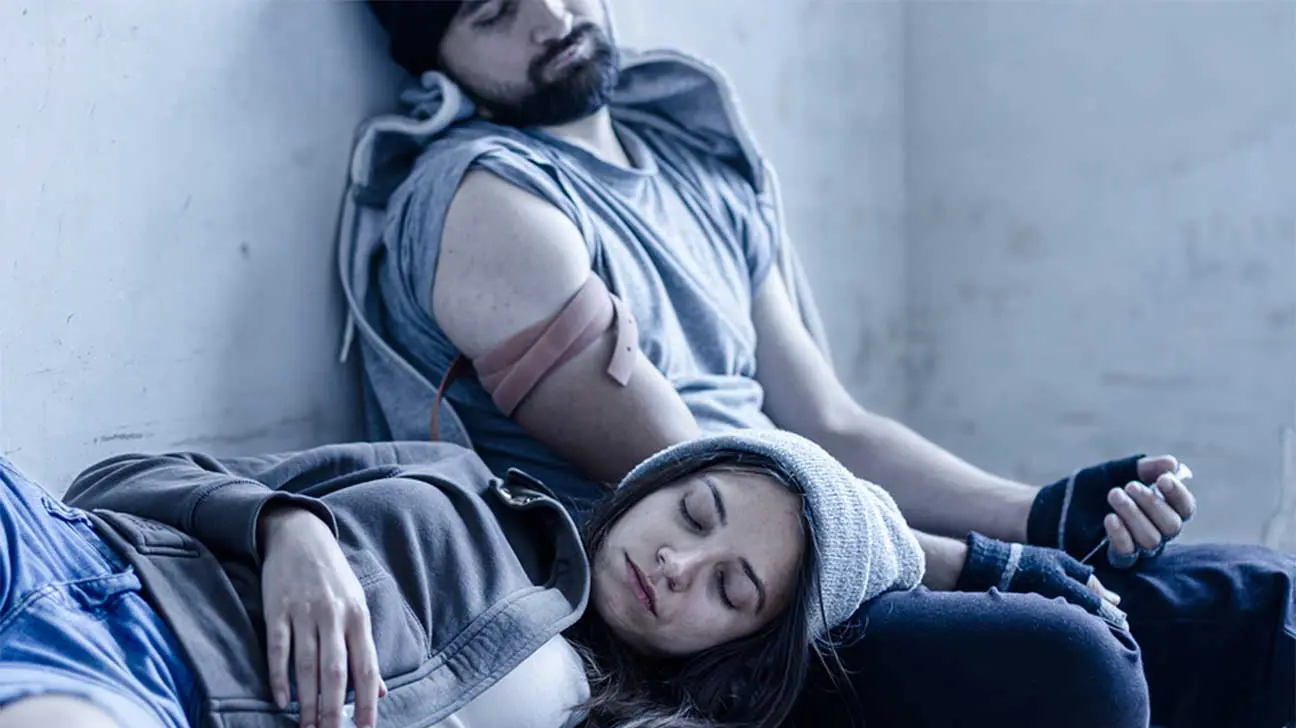
One of the most common effects of heroin is “nodding out”. While this side effect of heroin isn’t always a sign of danger, it can indicate a heroin overdose or be a sign of heroin abuse.
Heroin is a powerful opioid drug that can cause a range of side effects on the brain and the body when snorted, smoked, injected, or plugged.
It has effects similar to prescription opioids like morphine, oxycodone (OxyContin), and hydrocodone (Vicodin).
Physical signs of heroin use include:
- drowsiness
- tiny pupils
- itching
- heroin nod (“on the nod”)
Learn more about the signs of heroin abuse
What Is Nodding Out?
Nodding out is a nonmedical term used to describe a side effect of some drugs, including heroin. Specifically, this is a drug-induced state of shifting between consciousness and unconsciousness.
Heroin is a depressant drug, which means it can depress heart rate, blood pressure, breathing rate, and brain activity.
It can cause a rush of euphoria and relaxation, as well as a sense of drowsiness.
This shift between being fully alert to being only semi-conscious may cause the head to nod up and down.
This may last for a couple of hours, depending on the method of heroin use, the amount used, and other personal factors.
What Causes The Heroin Nod?
The “heroin nod” or “nodding out” side effect of heroin occurs as a result of its depressant effects on the central nervous system, composed of the brain and spinal cord.
Using heroin may cause a person to begin nodding out within minutes.
Heroin is widely known as a drug that can produce rapid euphoric effects, with some side effects, including drowsiness, subject to last for a couple of hours after use.
Is Nodding Out Dangerous?
Nodding out is a common side effect of heroin, a dangerous drug of abuse. Nodding out after taking heroin, or falling in and out of full consciousness, can be dangerous for a few reasons.
Nodding Out Can Increase Risk Of Accidents
First, nodding out can make people more susceptible to accidents while they’re in a semi-conscious state.
This may put someone at risk for falls, motor vehicle accidents, becoming a victim of sexual violence, or suffering other injuries while semi-conscious.
Substance Abuse And Addiction
Nodding out is a sign of heroin use. It can also be a sign of heroin abuse and addiction, particularly if someone is nodding out very often.
Heroin abuse, which refers to a pattern of harmful drug use, can lead to addiction over time.
This can make heroin difficult to stop taking alone, by triggering withdrawal symptoms—such as strong opiate cravings—within hours of a person’s last use.
Chronic heroin use can also risk long-term effects, such as:
- abscesses (if injected)
- contracting infectious diseases like hepatitis
- drug-induced mental health disorders
- difficulty functioning in everyday life
Nodding Out Can Be A Sign Of Drug Overdose
Nodding out can also be a dangerous sign of polydrug abuse—using multiple drugs at once—or overdose. Overdosing is one of the primary dangers of heroin use, and can be deadly.
Heroin Overdose: Signs And Symptoms
Overdose is a dangerous consequence of taking too much of one or more drugs at one time. Nodding out on heroin, or becoming unresponsive, is a sign of heroin overdose.
Signs and symptoms of a heroin overdose can include:
- confusion
- bluish fingernails and lips
- cold, clammy skin
- vomiting
- awake but unable to talk
- choking or gurgling sounds
- limp body
- loss of consciousness
Naloxone, also known as Narcan, can reverse an overdose if administered quickly.
Read more about heroin overdose signs
Treatment For Heroin Abuse And Addiction
Becoming addicted to heroin can make a person feel like there’s no way out. If you or someone you know is addicted to heroin, overcoming an addiction to heroin is possible.
Seeking treatment for addiction through a behavioral healthcare provider is the safest and most effective way to stop using heroin for good.
Treatment for heroin addiction may involve:
- medically supervised detox
- inpatient rehab
- outpatient rehab
- medications for opioid use disorder (e.g. methadone, buprenorphine/naltrexone)
- group counseling
- behavioral therapy
Trying to quit heroin alone can be dangerous. Without a strong support system, trying to quit heroin alone can put a person at high risk for relapse and fatal overdose.
Find Heroin Addiction Treatment
If you or a loved one is using heroin, it’s never too early or too late to seek help.
Call our helpline today to learn more about the signs of heroin addiction and how to find heroin addiction treatment options near you.
Addiction Resource aims to provide only the most current, accurate information in regards to addiction and addiction treatment, which means we only reference the most credible sources available.
These include peer-reviewed journals, government entities and academic institutions, and leaders in addiction healthcare and advocacy. Learn more about how we safeguard our content by viewing our editorial policy.
- Centers for Disease Control and Prevention (CDC)—Heroin Overdose Data
https://www.cdc.gov/drugoverdose/data/heroin.html - U.S. National Institute on Drug Abuse (NIDA)—Heroin DrugFacts
https://www.drugabuse.gov/publications/drugfacts/heroin - Harm Reduction Coalition—Recognizing Opioid Overdose
https://harmreduction.org/issues/overdose-prevention/overview/overdose-basics/recognizing-opioid-overdose/


